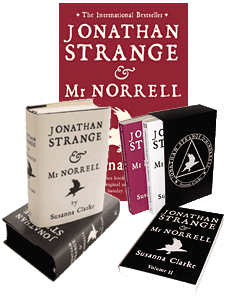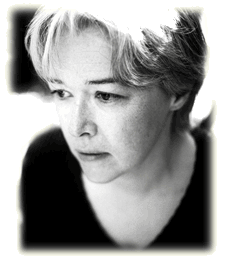
Jonathan Strange and Mr Norrell
Susanna Clarke
Price (Hardcover): Rs 809.10
Bloomsbury
LAST year, Bloomsbury unleashed on the English-speaking world its biggest marketing campaign for a single book. That the publishers also brought out the phenomenon called Harry Potter was not missed and Jonathan Strange and Mr Norrell quickly went on to become a best seller.
In the light of J K Rowling's success, fantasy, at least in books, had found a new life. This enabled Susanna Clarke, a cookbook writer turned author, to spend a decade writing a book that would be billed as Harry Potter for adults.
But Clarke owes almost nothing to Rowling; instead her style is a marriage of Jane Austen and Charles Dickens. Her attempt is to write a magical history of early nineteenth century England. With the help of 185 footnotes which provide the deep background to the story, she sets about telling her tale in a dry but delightful tone.
JONATHAN Strange and Mr Norrell is set in Regency period (early 19th century) in England. Magic has almost been reduced to a memory and the country has no more magicians. Enter then Mr Norrell, a reclusive magician with a library full of magical books, who arrives in London with the sole intention of single-handedly restoring magic to its ancient glory.
Magic has become rather ungentlemanly so the public remains sceptical until an important official's fiance is brought back from the dead by Mr Norrell using black magic which would later have disastrous consequences. The government quickly finds him useful in its long, drawn out war against Napoleon.
As Mr Norrell's feats of magic become famous, many young men through out the land become eager to learn this new profession. Jonathan Strange, a country squire, acquires a prophecy through luck and soon becomes Mr Norrell's only student. Though the mentor grows to become extremely fond of his student, Strange's ambitions eventually outgrow his teacher's. He travels to Portugal and helps the English military campaign there.
But Mr Norrell, who is paranoid about another magician challenging him, denies Strange access to his library, which causes the two men to fall out. Strange decides to go on his own way - he is fascinated with the legend of the northern king, John Uskglass also known as the Raven King and wants to learn about the faerie lands. His loses his much beloved wife and his attempt to recover her end in a climatic battle with unknown powers, in which he is finally joined by Mr Norrell. More....
CLARKE takes a hundred pages to set the milieu of the tale, but once in, the re ader is hooked. Clarke's magic is more like an experiment performed in a physics or a chemistry lab. Given the methodology and materials, you can do it as good as Mr Norrell.
ader is hooked. Clarke's magic is more like an experiment performed in a physics or a chemistry lab. Given the methodology and materials, you can do it as good as Mr Norrell.
None of her characters are purely good or evil, including the protagonists. The indifferent and thuggish John Childermass, the irascible Lascelles and the hesitant black butler Stephen are no heroes. Clarke offers them no place for virtuous, self-righteous behaviour; they are all exploitative, cunning and resourceful, more interested in survival than in moral principles.
Indeed, some may perceive the lack of heroes to be a drawback. There is nobody here that you can root for and that added to Clarke's deliberate, dull tone can drive some up the wall. Clarke is not quite so successful as say, Tolkein, in transporting you into an another world, a criterion with which many judge a work of fantasy. Some episodes between the black butler and the ``gentleman with thistle-down hair'' drag and the deliberate obtuseness of the plot is sometimes maddening. Clarke's archaic spelling of some words like chuse and shew, used to give a flavour of Old English, is more likely to hinder than help readers.
Add to this the total lack of sexuality in the book; Much like Tolkein's characters, Clarke's too are devoid of sexual feelings. Even Strange's love for his wife Arabella, a central thread of the story, is sterile.
But Clarke's dry humour and her literate, knowing descriptions of early 19th century London and her understanding inhabitants more than redeem the novel.
London society and mannerisms are described with such authenticity that one ends up wanting to believe that magic actually existed in this age. The author adopts not the tone of a high-brow writer, but the gossipy manner of the neighbour sharing with you the city's happenings. She is also mildly (and sometimes this mildness is used with devastating effect) sarcastic of her characters' ideas and their life.
BOTH Mr Norrell and Strange are well fleshed out characters, but they pale before Clarke outstanding creation: The Raven King. Though only a presence, this human brought up by fairies who later invades England is as chilling as he is intriguing.
Strange's obsession with him, which begins soon after the Napoleonic wars, is superbly plotted, giving the book its racy and startlingly fast-paced climax. The last 200 pages of the book, in sharp contrast to all that came before, are a riot, with the author letting loose her imaginative and narrative power. It's impossible not to be gripped by Strange's feverish attempts to invoke the Raven King, as he fights the madness and darkness surrounding him. Clarke's book is a remarkable debut, a clever work of sophistication filled with rich metaphors. The book's size make you work hard for its pleasures, but plough ahead and you will be rewarded.
There is news that a film on the book is to be made.